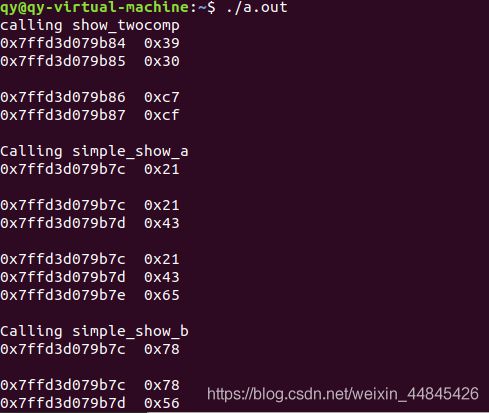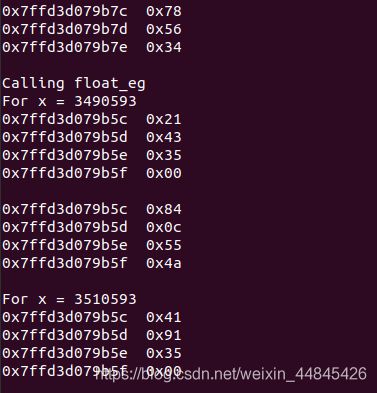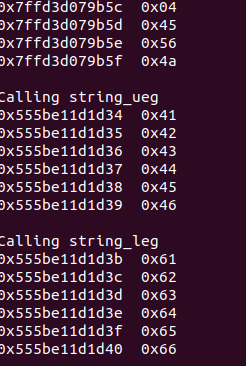- CTF——web方向学习攻略
一则孤庸
CTF网络安全CTF
1计算机基础操作系统:熟悉Linux命令,方便使用Kali。网络技术:HCNA、CCNA。编程能力:拔高项,有更好。2web应用HTTP协议:必须掌握web开发框架web安全测试3数据库数据库基本操作SQL语句数据库优化4刷题
- 百度秋招测开面经
情书学长
面试百度笔记
1、自我介绍2、MySQL一、结合简历的项目说一下数据库设计如何优化二、说一下所知道的索引类型三、索引的优缺点四、索引的使用建议3、计算机基础一、TCP和UDP的区别二、TCP的三次握手的流程三、进程和线程的概念和区别四、深拷贝和浅拷贝的区别5、Linux一、文件查看前10行的命令二、文件编辑的命令三、vim和view的区别四、查看端口的命令五、查看进程的命令6、数据结构一、说一下知道的数据结构二
- 网络安全(黑客)——自学2024
白帽子黑客-宝哥
web安全安全嵌入式硬件网络单片机
一、什么是网络安全网络安全是一种综合性的概念,涵盖了保护计算机系统、网络基础设施和数据免受未经授权的访问、攻击、损害或盗窃的一系列措施和技术。经常听到的“红队”、“渗透测试”等就是研究攻击技术,而“蓝队”、“安全运营”、“安全运维”则研究防御技术。作为一个合格的网络安全工程师,应该做到攻守兼备,毕竟知己知彼,才能百战百胜。二、网络安全怎么入门安全并非孤立存在,而是建立在其计算机基础之上的应用技术。
- 2020-07-20【阅读营·习惯力】1-1 开营
s萤火虫之光
【✨大师姐自荐✨】当崔律讲到“看到如此复杂的规则玩法时,你是如何想的?”时候,你有被戳中吗?看看我在这个过程中的心路历程,你是否也有同款呢?欢迎留言碰撞呦【精时力学习日志】本训练营:阅读营·习惯力今日主题:1-1开营学习日期:2020年7月20日1、[我学]今天在课程中的收获:本营的三本书籍:《如何想到又做到》、《坚持,一种可以养成的习惯》《习惯的力量》1.1习惯是什么?《习惯的力量》告诉我们,所
- 机械学习—零基础学习日志(概率论总笔记5)
学长小陈来帮你
学习笔记概率论算法深度学习机器学习
引言——“黑天鹅”要获得95%以上置信度的统计结果,需要被统计的对象出现上千次,但是如果整个样本只有几千字,被统计的对象能出现几次就不错了。这样得到的数据可能和真实的概率相差很远。怎么避免“黑天鹅”?古德-图灵折扣估计法在词语统计中,有点词语虽然是出现0次,但是实际的出现概率并不是永远不可能的零。那需要把一些概率转移给到这些词语。古德的做法实际上就是把出现1次的单词的总量,给了出现0次的,出现2次
- 2020-02-24【高效在家办公】2.1在家办公着装
s萤火虫之光
【精时力学习日志】•本期专栏:高效在家办公/学习的21节课•本节主题:2.1在家办公着装•学习日期:2020年2月24日1.[知识]我在课程中的收获:1.1温故(1)小伙伴提到,有崔律在前面领路,感觉心里很踏实,确实有同感,或许这就是榜样的力量。我的思考:崔律做精时力伙伴的领路人,那我可以做谁的领路人呢?可以是家人的,比如孩子、老公,也可以是天津精时力小伙伴的,所以精时力学院天津站,要搞起来~(2
- 电脑操作从零到精通:全方位入门资源包
马屿人
本文还有配套的精品资源,点击获取简介:电脑快速入门资源下载提供了一系列教程,帮助初学者迅速掌握计算机基础知识和操作技能。教程涵盖了计算机组成部分、操作系统选择、文件管理、网络连接、办公软件应用、安全与维护、进阶技能等关键领域。资源包括详细的《电脑快速入门.PDF》教程和《***说明.txt》,初学者可借此逐步提升电脑操作技能,适应数字世界。1.计算机基础知识和组成部分1.1计算机硬件与软件概述计算
- HCIA学习日志-eNSP学习小记
不渡云山
eNSPHCIA学习
eNSP配置一、配置视图配置视图大概可以分四类(不是):用户视图、系统视图、接口视图、路由视图用户视图::#用户视图系统视图::system-view/sys#用户视图进系统视图[Huawei]:#系统视图接口视图::system-view/sys#用户视图进系统视图[Huawei]:interface/intEthernet0/0/1#系统视图进接口视图[Huawei-Ethernet0/0/1
- 关于计算机程序设计语言正确说法是,计算机基础考试习题.doc
一只鱼的传说
计算机基础考试习题大学计算机基础教程考试模拟题库11.当磁盘设置写保护时,用户___A___磁盘。A.只能读不能写B.只能写不能读C.既能读又能写D.既不能读又不能写2.ENIAC计算机所采用的逻辑器件是___A____。A.电子管B.晶体管C.中小型集成电路D.大规模及超大规模集成电路3.通常人们所说的一个完整的计算机系统应包括____D_____。A.运算器、存储器和控制器B.计算机和它的外围
- 天妈内驱力训练营二阶段
俏丫头悄悄
亲子日志4.10日田青昨天晚上,妹妹8点就睡了,9点我们都躺在床上,我在写学习日志,没有到读书的点,儿子翻来覆去的,想要把妹妹弄醒陪他疯一会,我阻止他,建议睡不着做点什么吧!读书?不想。玩具,看了看也不想玩儿,最后我拿了周末要做的练习册(自己买的)建议把很有把握的题划掉,只做还不是很熟练的,这个立马来了兴趣(这是一个育儿课的方法),12个题的一套期中测试题,划了前十个,我看了以后问了两题,确实都会
- Day80:2019-07-11【100天崔律阅读营·Day80-12.4日志
迷猴桃sally
【100天崔律阅读营·Day80-12.4日志】这是2019年7月11日“100天崔律阅读营”之“整理术对比阅读:《怦然心动》+《断舍离》”2.4整理家人的物品的学习日志。1.我今日的收获:《断舍离》『不要轻易扔掉他人物品』不同的人对于同一件事物的看法会不同,因此,有些东西我们看做无用的、垃圾,有些人则可能会认为是无价之宝,所以,不要轻易扔掉别人的物品,我们要尽量克制这点。『不要归责他人』当出现问
- 2020-05-16
一节木頭
【精时力学习日志·预习版】本训练营:阅读营·清单力学习日期:2020年5月16日预习主题:3.1礼物清单1.[预习]我的阅读理解:送礼要送到人的心坎里去,让人不论是因为什么场合收礼,都能收得很开心很满意,送对礼物是一种特别的体验,除了收女人会非常开心,那送礼的人也可以表达关心。送礼也是可以有清单可循的:①送礼物要尽早开始挑选做到未雨绸缪,提前预留出两个月左右的时间进行选购礼物。预留时间来挑选礼物,
- 350页前端校招面试题直击大厂:前端基础、前端核心、计算机基础、项目、Hr面
2401_86400095
前端
**1.HTML2.CSS3.前端基础4.前端核心5.前端进阶6.移动端开发7.计算机基础8.算法与数据结构9.设计模式10.项目11.职业发展12.Hr面**正文HTML1.浏览器页面有哪三层构成,分别是什么,作用是什么?2.HTML5的优点与缺点?3.Doctype作用?严格模式与混杂模式如何区分?它们有何意义?4.HTML5有哪些新特性、移除了哪些元素?5.你做的网页在哪些浏览器测试过,这些
- 机器学习面试题目分享面试经验分享 机器学习算法工程师深度学习 经典问题
好家伙VCC
面试机器学习面试经验分享stm32嵌入式硬件单片机fpga开发
标题机器学习面经总结的常见面试题目等作业帮实习视觉算法一面凉凉经3.16号投递图像算法实习生,昨天hr打电话约了今早上牛客面试面试官还是很和蔼的,问了很多基础和细节,平时我都没有注意到的,肯定凉了,在这里记录一下,分享给大家由于我本科研究生都是计算机的,因此问了一些计算机基础的东西,但是由于年代久远,我都不记得了机器学习方面知识因为缺少一些动手实践,因此很多细节都不了解感谢面试官让我了解到这么多不
- 8-3[白天]摒弃随时在线
孔雀勇士
【精时力学习日志】本训练营:100天精时力训练营(2020年版)今日主题:8-3[白天]摒弃随时在线学习日期:2020年11月11日1、[进步]今天在课程中的我学+我思+我行:——暖场——①【我学】莹瑜说培养孩子一次只做一件事,grace分享在通勤录上用来思考,可能会带来更大的收获,优美感悟到通过一次只做一件事,浮躁的心终于渐渐平静了。【我思】今天在家一直践行一次,只做一件事情,听课认真听课,写日
- 想学java,需要什么基础?
吹来人间烟火
不需要什么基础,课程都是针对于零基础的同学,设计这个行业,本身入行门槛比较低,能力重于学历。真正科班出身的更是少数,大部分人都是通过找培训机构系统学习出来的,所以只要自己下定决心去学,就一定能学会的。另外,如果说普通人具备哪些能力可以更好地学习Java,那可以列出来三点。1、简单的英语读写能力;2、一定的数学基础;3、一定的计算机基础操作能力。Java是一门面向对象地编程语言,吸收了C++语言的各
- 三篇学习日志(立志、勤学、自省)
涛声依旧纽约客
(一)今日再读《示弟立志说》,颇有感慨。夫学,莫先于立志。夫志,气之帅也,人之命也,水之源也。君子之学,无时无处而不以立志为事。志不立则气昏。读每一句,都戳着心,我思忖着即使过了知天命之年,仍需要志向的鞭策。那么个人的志向是什么?绝非浪得虚名或一己私利,那需要实实在在的明理明道,有圣人圣贤的志向。“人心惟危,道心惟微,惟精惟一,允执厥中”。圣贤千言万语,阳明先生进一步强调“明天理、灭人欲。”我个人
- 【精时力学习日志-日清单】
海南冰青
【精时力学习日志】本训练营:日清单今日主题:1-3重复任务学习日期:2020年4月1日1.[知识]我在课程中的收获:【学习方式】含有两大部分温故-新知每天重复这两大部分内容,今天温故昨天的新知,结合自己昨天对新知部分内容的实践,自己对刚学的知识点有了进一步的思考,同时结合今天温故部分看优秀小伙伴的日志,再重温昨天的内容,可以复盘自己哪部分做的好,哪一部分做的不好,有哪一些可以改进的地方,小伙伴的做
- 计算机组装win7实训报告,计算机实训报告范文精选5篇
喵喵哒哟
计算机组装win7实训报告
实训报告是展示自身实训收获成长的重要报告,那么实训报告该如何写呢?小编精选了一些关于实训报告的优秀范例,一起来看看吧。计算机基础实训报告实训时间:xx年12月26日—12月28日实训目的:通过上机操作形式,潜移默化地进行综合操作素质的训练,增强学生综合运用所学知识解决实际问题的能力。实训内容:word文档与excel表格的编辑与操作。短短三天的计算机实训结束了,通过这三天的实训,我学到了很多的知识
- 学习日志6
Simon#0209
学习
关于量子强化学习:论文Variational_Quantum_Circuits_for_Deep_Reinforcement_Learning:变分量子电路在深度强化学习中的应用论文主要内容:将经典深度强化学习算法(如经验重放和目标网络)重塑为变分量子电路的表示摘要当前最先进的机器学习方法基于经典冯·诺伊曼计算架构,并在许多工业和学术领域得到广泛应用。随着量子计算的发展,研究人员和技术巨头们试图为
- STM32学习日志 2020/10/29
曾经有个曾
学习历程stm32
STM32学习日志2020/10/29写在前面part1part2学习目标:学习内容:学习时间:学习产出:技术文档:第一课学习其他学习思路今日复盘写在前面博主今年大二,电赛降至,自己的电子设计领域知识极其匮乏,又甚是想去参加电赛,同时记录下自己学习经历,方便自我回顾和帮后来者踩坑。part1第一次正经写博客,想到哪写到哪,希望各位不要见怪。写作动机:除了记录学习经历之外,另外一个就是自我督促。我一
- 计算机基础---缓冲区
守住这块热土
写在前面,IO类总结之前,应该注意的几个问题:C++的缓冲区是什么概念?参考文档:51CTO---C++编程对缓冲区的理解C++的打开文件模式有哪些,之间的区别是什么?Part1缓冲区一、什么是缓冲区缓冲区又称为缓存,它是内存空间的一部分。也就是说,在内存空间中预留了一定的存储空间,这些存储空间用来缓冲输入或输出的数据,这部分预留的空间就叫做缓冲区。缓冲区根据其对应的是输入设备还是输出设备,分为输
- 学习日志31
Simon#0209
学习量子计算
本源量子计算平台体验frompyqpandaimport*importnumpyasnp#通过QCloud()创建量子云虚拟机QCM=QCloud()#通过传入当前用户的token来初始化QCM.init_qvm("304102010030130607299538cd7ed/33683")qlist=QCM.qAlloc_many(6)clist=QCM.cAlloc_many(6)measure
- 学习日志26
Simon#0209
学习
#coding:utf-8#In[1]:importgymimportcollectionsimportrandomimporttorchimporttorch.nn.functionalasFimportnumpyasnpimportmatplotlib.pyplotaspltfromtqdmimporttqdmimportpennylaneasqmlfromtorch.utils.tensor
- Django学习日志三:模型层
Z天南之城Z
python后端django入门django学习python
Django学习日志三:模型层1日志一我们学习了Django的配置,详见:Django学习日志一Django的配置日志二我们学习了创建第一个django项目,详见:Django学习日志二——创建第一个django项目下面我们来学习模型层的使用:五、模型层模型层用于和数据交互。可以通过模型和关系型数据库实现持久化的操作。在Django开发中主要以MySQL作为首选数据库,同时使用非关系型数据库Mon
- Python学习日志(1)—— IDE
Strawberry96
python学习idepython
IDE,集成开发环境,帮助我们进行高效的开发。Python开发——IDE应用场景选择:适合本地开发:VSCode:适合初学者,轻量级PyCharm:适合有经验的程序员,多人合作,重量级适合远程开发:Jupter:适合数学科学家,AI开发VSCode和PyCharm的安装比较简单。Jupter是第一次听说,在进行AI的开发或者是图片处理之类的,可以在远程开发。安装Jupter//3.12是对应的py
- 让理科生沉默,让文科生落泪的题
abcdefghijk0987
javaphpjavascriptViewUI
本文选自果壳上的一篇文章,感觉好有意思,故拿来分享。此文的精华之处在于考你计算机基础知识的同时,顺便考了你其他属文方面的知识,以及各种知识间的相通性。让你用计算机的思想去看待世界,看待万物。不多废话,给出原文地址:http://www.guokr.com/article/31315/一,选择题(皆为单选):1.以下谁是二进制思想的最早提出者?a,伏羲;b,姬昌;c,莱布尼茨;d,柏拉图。答案:a,
- 计算机基础复习8.29
我叫啥都行
计算机基础知识笔记后端计算机网络linux
进程,线程,协程的区别进程是操作系统中进行资源分配和调度的基本单位,他拥有自己的独立内存空间和系统资源。每个进程都有独立的堆和栈,不与其他进程共享。进程间通信需要通过特定的机制,如管道,消息队列,信号量等。由于进程拥有独立的内存空间,因此其稳定性和安全性相对较高,但同时上下文切换的开销较大,因为需要保存和恢复整个进程的状态线程是进程内的一个执行单元,也是CPU调度和分派的基本单位。与进程不同,线程
- 计算机基础知识复习8.22
我叫啥都行
计算机基础知识java开发语言后端笔记sql
锁升级机制无锁->偏向锁->轻量级锁->重量级锁线程A进入synchronized开始抢锁,JVM会判断当前是否是偏向锁的状态,如果是就会根据MarkWord中存储的线程ID来判断,当前线程A是否就是持有偏向锁的线程,如果是,则忽略check,线程A直接执行临界区内的代码。如果MarkWord里的线程不是线程A,就会通过自旋尝试获取锁,如果获取到了,就将MarkWord中的线程ID改为自己,如果竞
- 计算机基础知识复习8.9
我叫啥都行
计算机基础知识java开发语言后端笔记jvm
什么是零拷贝是一种内存映射文件的方法,即将一个文件或者其他对象映射到进程的地址空间,实现文件磁盘地址和进程虚拟地址空间中一段虚拟地址的一一对映关系。就是内核缓冲区和应用缓冲区共享,从而减少了从读缓冲区到用户缓冲区的一次CPU拷贝StringStringBuilderStringBuffer使用String是不可变的,StringBuilder与StringBuffer都继承自AbstractStr
- mondb入手
木zi_鸣
mongodb
windows 启动mongodb 编写bat文件,
mongod --dbpath D:\software\MongoDBDATA
mongod --help 查询各种配置
配置在mongob
打开批处理,即可启动,27017原生端口,shell操作监控端口 扩展28017,web端操作端口
启动配置文件配置,
数据更灵活
- 大型高并发高负载网站的系统架构
bijian1013
高并发负载均衡
扩展Web应用程序
一.概念
简单的来说,如果一个系统可扩展,那么你可以通过扩展来提供系统的性能。这代表着系统能够容纳更高的负载、更大的数据集,并且系统是可维护的。扩展和语言、某项具体的技术都是无关的。扩展可以分为两种:
1.
- DISPLAY变量和xhost(原创)
czmmiao
display
DISPLAY
在Linux/Unix类操作系统上, DISPLAY用来设置将图形显示到何处. 直接登陆图形界面或者登陆命令行界面后使用startx启动图形, DISPLAY环境变量将自动设置为:0:0, 此时可以打开终端, 输出图形程序的名称(比如xclock)来启动程序, 图形将显示在本地窗口上, 在终端上输入printenv查看当前环境变量, 输出结果中有如下内容:DISPLAY=:0.0
- 获取B/S客户端IP
周凡杨
java编程jspWeb浏览器
最近想写个B/S架构的聊天系统,因为以前做过C/S架构的QQ聊天系统,所以对于Socket通信编程只是一个巩固。对于C/S架构的聊天系统,由于存在客户端Java应用,所以直接在代码中获取客户端的IP,应用的方法为:
String ip = InetAddress.getLocalHost().getHostAddress();
然而对于WEB
- 浅谈类和对象
朱辉辉33
编程
类是对一类事物的总称,对象是描述一个物体的特征,类是对象的抽象。简单来说,类是抽象的,不占用内存,对象是具体的,
占用存储空间。
类是由属性和方法构成的,基本格式是public class 类名{
//定义属性
private/public 数据类型 属性名;
//定义方法
publ
- android activity与viewpager+fragment的生命周期问题
肆无忌惮_
viewpager
有一个Activity里面是ViewPager,ViewPager里面放了两个Fragment。
第一次进入这个Activity。开启了服务,并在onResume方法中绑定服务后,对Service进行了一定的初始化,其中调用了Fragment中的一个属性。
super.onResume();
bindService(intent, conn, BIND_AUTO_CREATE);
- base64Encode对图片进行编码
843977358
base64图片encoder
/**
* 对图片进行base64encoder编码
*
* @author mrZhang
* @param path
* @return
*/
public static String encodeImage(String path) {
BASE64Encoder encoder = null;
byte[] b = null;
I
- Request Header简介
aigo
servlet
当一个客户端(通常是浏览器)向Web服务器发送一个请求是,它要发送一个请求的命令行,一般是GET或POST命令,当发送POST命令时,它还必须向服务器发送一个叫“Content-Length”的请求头(Request Header) 用以指明请求数据的长度,除了Content-Length之外,它还可以向服务器发送其它一些Headers,如:
- HttpClient4.3 创建SSL协议的HttpClient对象
alleni123
httpclient爬虫ssl
public class HttpClientUtils
{
public static CloseableHttpClient createSSLClientDefault(CookieStore cookies){
SSLContext sslContext=null;
try
{
sslContext=new SSLContextBuilder().l
- java取反 -右移-左移-无符号右移的探讨
百合不是茶
位运算符 位移
取反:
在二进制中第一位,1表示符数,0表示正数
byte a = -1;
原码:10000001
反码:11111110
补码:11111111
//异或: 00000000
byte b = -2;
原码:10000010
反码:11111101
补码:11111110
//异或: 00000001
- java多线程join的作用与用法
bijian1013
java多线程
对于JAVA的join,JDK 是这样说的:join public final void join (long millis )throws InterruptedException Waits at most millis milliseconds for this thread to die. A timeout of 0 means t
- Java发送http请求(get 与post方法请求)
bijian1013
javaspring
PostRequest.java
package com.bijian.study;
import java.io.BufferedReader;
import java.io.DataOutputStream;
import java.io.IOException;
import java.io.InputStreamReader;
import java.net.HttpURL
- 【Struts2二】struts.xml中package下的action配置项默认值
bit1129
struts.xml
在第一部份,定义了struts.xml文件,如下所示:
<!DOCTYPE struts PUBLIC
"-//Apache Software Foundation//DTD Struts Configuration 2.3//EN"
"http://struts.apache.org/dtds/struts
- 【Kafka十三】Kafka Simple Consumer
bit1129
simple
代码中关于Host和Port是割裂开的,这会导致单机环境下的伪分布式Kafka集群环境下,这个例子没法运行。
实际情况是需要将host和port绑定到一起,
package kafka.examples.lowlevel;
import kafka.api.FetchRequest;
import kafka.api.FetchRequestBuilder;
impo
- nodejs学习api
ronin47
nodejs api
NodeJS基础 什么是NodeJS
JS是脚本语言,脚本语言都需要一个解析器才能运行。对于写在HTML页面里的JS,浏览器充当了解析器的角色。而对于需要独立运行的JS,NodeJS就是一个解析器。
每一种解析器都是一个运行环境,不但允许JS定义各种数据结构,进行各种计算,还允许JS使用运行环境提供的内置对象和方法做一些事情。例如运行在浏览器中的JS的用途是操作DOM,浏览器就提供了docum
- java-64.寻找第N个丑数
bylijinnan
java
public class UglyNumber {
/**
* 64.查找第N个丑数
具体思路可参考 [url] http://zhedahht.blog.163.com/blog/static/2541117420094245366965/[/url]
*
题目:我们把只包含因子
2、3和5的数称作丑数(Ugly Number)。例如6、8都是丑数,但14
- 二维数组(矩阵)对角线输出
bylijinnan
二维数组
/**
二维数组 对角线输出 两个方向
例如对于数组:
{ 1, 2, 3, 4 },
{ 5, 6, 7, 8 },
{ 9, 10, 11, 12 },
{ 13, 14, 15, 16 },
slash方向输出:
1
5 2
9 6 3
13 10 7 4
14 11 8
15 12
16
backslash输出:
4
3
- [JWFD开源工作流设计]工作流跳跃模式开发关键点(今日更新)
comsci
工作流
既然是做开源软件的,我们的宗旨就是给大家分享设计和代码,那么现在我就用很简单扼要的语言来透露这个跳跃模式的设计原理
大家如果用过JWFD的ARC-自动运行控制器,或者看过代码,应该知道在ARC算法模块中有一个函数叫做SAN(),这个函数就是ARC的核心控制器,要实现跳跃模式,在SAN函数中一定要对LN链表数据结构进行操作,首先写一段代码,把
- redis常见使用
cuityang
redis常见使用
redis 通常被认为是一个数据结构服务器,主要是因为其有着丰富的数据结构 strings、map、 list、sets、 sorted sets
引入jar包 jedis-2.1.0.jar (本文下方提供下载)
package redistest;
import redis.clients.jedis.Jedis;
public class Listtest
- 配置多个redis
dalan_123
redis
配置多个redis客户端
<?xml version="1.0" encoding="UTF-8"?><beans xmlns="http://www.springframework.org/schema/beans" xmlns:xsi=&quo
- attrib命令
dcj3sjt126com
attr
attrib指令用于修改文件的属性.文件的常见属性有:只读.存档.隐藏和系统.
只读属性是指文件只可以做读的操作.不能对文件进行写的操作.就是文件的写保护.
存档属性是用来标记文件改动的.即在上一次备份后文件有所改动.一些备份软件在备份的时候会只去备份带有存档属性的文件.
- Yii使用公共函数
dcj3sjt126com
yii
在网站项目中,没必要把公用的函数写成一个工具类,有时候面向过程其实更方便。 在入口文件index.php里添加 require_once('protected/function.php'); 即可对其引用,成为公用的函数集合。 function.php如下:
<?php /** * This is the shortcut to D
- linux 系统资源的查看(free、uname、uptime、netstat)
eksliang
netstatlinux unamelinux uptimelinux free
linux 系统资源的查看
转载请出自出处:http://eksliang.iteye.com/blog/2167081
http://eksliang.iteye.com 一、free查看内存的使用情况
语法如下:
free [-b][-k][-m][-g] [-t]
参数含义
-b:直接输入free时,显示的单位是kb我们可以使用b(bytes),m
- JAVA的位操作符
greemranqq
位运算JAVA位移<<>>>
最近几种进制,加上各种位操作符,发现都比较模糊,不能完全掌握,这里就再熟悉熟悉。
1.按位操作符 :
按位操作符是用来操作基本数据类型中的单个bit,即二进制位,会对两个参数执行布尔代数运算,获得结果。
与(&)运算:
1&1 = 1, 1&0 = 0, 0&0 &
- Web前段学习网站
ihuning
Web
Web前段学习网站
菜鸟学习:http://www.w3cschool.cc/
JQuery中文网:http://www.jquerycn.cn/
内存溢出:http://outofmemory.cn/#csdn.blog
http://www.icoolxue.com/
http://www.jikexue
- 强强联合:FluxBB 作者加盟 Flarum
justjavac
r
原文:FluxBB Joins Forces With Flarum作者:Toby Zerner译文:强强联合:FluxBB 作者加盟 Flarum译者:justjavac
FluxBB 是一个快速、轻量级论坛软件,它的开发者是一名德国的 PHP 天才 Franz Liedke。FluxBB 的下一个版本(2.0)将被完全重写,并已经开发了一段时间。FluxBB 看起来非常有前途的,
- java统计在线人数(session存储信息的)
macroli
javaWeb
这篇日志是我写的第三次了 前两次都发布失败!郁闷极了!
由于在web开发中常常用到这一部分所以在此记录一下,呵呵,就到备忘录了!
我对于登录信息时使用session存储的,所以我这里是通过实现HttpSessionAttributeListener这个接口完成的。
1、实现接口类,在web.xml文件中配置监听类,从而可以使该类完成其工作。
public class Ses
- bootstrp carousel初体验 快速构建图片播放
qiaolevip
每天进步一点点学习永无止境bootstrap纵观千象
img{
border: 1px solid white;
box-shadow: 2px 2px 12px #333;
_width: expression(this.width > 600 ? "600px" : this.width + "px");
_height: expression(this.width &
- SparkSQL读取HBase数据,通过自定义外部数据源
superlxw1234
sparksparksqlsparksql读取hbasesparksql外部数据源
关键字:SparkSQL读取HBase、SparkSQL自定义外部数据源
前面文章介绍了SparSQL通过Hive操作HBase表。
SparkSQL从1.2开始支持自定义外部数据源(External DataSource),这样就可以通过API接口来实现自己的外部数据源。这里基于Spark1.4.0,简单介绍SparkSQL自定义外部数据源,访
- Spring Boot 1.3.0.M1发布
wiselyman
spring boot
Spring Boot 1.3.0.M1于6.12日发布,现在可以从Spring milestone repository下载。这个版本是基于Spring Framework 4.2.0.RC1,并在Spring Boot 1.2之上提供了大量的新特性improvements and new features。主要包含以下:
1.提供一个新的sprin


